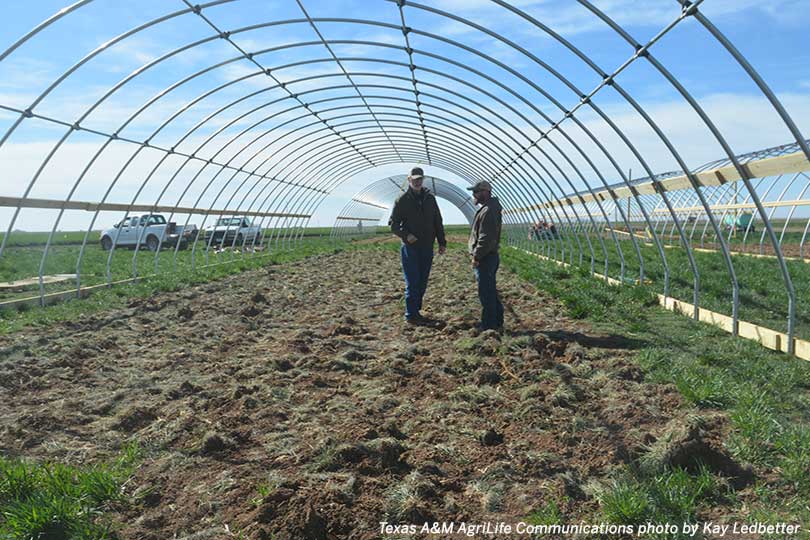Limited water availability and water concerns in the High Plains have led AgriLife Researchers to a new project looking at high-value vegetable crop production under high tunnels.
The Ogallala Aquifer water level is dropping, making it more difficult for farmers to irrigate their crops due to the depth of water and high cost.
“In areas south of Amarillo particularly, the water availability is becoming scarcer every year,” Dr. Charlie Rush, Texas A&M AgriLife Research plant pathologist in Amarillo, told AgriLife Today.
“We strongly believe that in some of the areas where they are running out of water, they’re no longer going to be able to grow high-value crops like peanuts or potatoes and even corn, because these all require a lot of water,” Rush said.
The high tunnels the experts are developing are a possible solution to the water concerns.
“Whereas, if you had a high tunnel, you could grow tomatoes and the amount of money you could make for every inch of water vastly outpaces what you could make on any other crop we’re currently growing in the Panhandle,” Rush said.
High tunnels are Quonset hut-type structures similar to greenhouses but lack artificial heat. The tunnels are 96 feet long, 30 feet wide and 12 feet tall, according to AgriLife Today.
The high tunnels feature both subsurface drip irrigation and a new root-demand irrigation.
“Instead of having our traditional subsurface drip or drip tape on top of the bed, root-demand irrigation tape is buried in the bed around the root zone, and as the root grows into contact with that, the roots are actually able to extract water directly from the tap when they need it,” Rush said.
Currently, the team is preparing the beds for their first crop of tomatoes. Rush said the seedlings are growing and will be ready to go by the middle of April. Their planting schedule will be determined once they get everything done at the high tunnels.
Rush said they will begin to research other specialty crops, including vegetables to be grown under high tunnels.
Researchers and engineers are going to study irrigation frequency and method, rotation schedules and conduct precision irrigation and fertilizer practices to develop best management practices to pass on to farmers who adopt high tunnels in the future.
Retailers like H-E-B are expressing interest in the research projects under the high tunnels.

